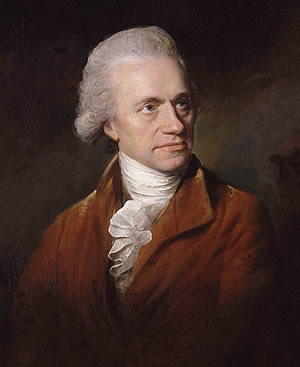Edited by David Baker and Christopher Bagot
Fitzjohn Music Publications
Ł9:00+ p&p

Here is yet another valuable new edition from Fitzjohn Music Publications of unjustly neglected 18th-century organ music by a composer whose renown extends much wider than purely through his musical career – significant of course though that was.
As the editors point out in their introductory note, Friedrich Wilhelm Herschel was born in Hanover, one of ten children of Isaac and Anna Herschel. A member of the local militia, he visited England in 1756, and the following year came to London with his brother Jacob on a more permanent basis. We are told that by this time William (as he was known in this country) was proficient on violin, oboe and organ, and was by all accounts apparently a good linguist.
By early 1760, as Baker and Bagot explain, William Herschel had become head of a small wind band in the North Yorkshire Militia, where his musical abilities as a composer and performer were soon recognised – especially, in the latter discipline, on the organ. He became a very successful musician – composer, performer and teacher – in various English cities, so much so that his growing wealth enabled him to devote time to other of his interests – science and astronomy. In the latter discipline he achieved lasting fame in March 1781 when he became the first person to discover the planet Uranus. Such was Herschel’s consequential eminence that during one of his visits to London in the 1790s, Haydn travelled to meet Herschel, viewingd the planet through Herschel’s own telescope.
We owe much to the catalogue of William Herschel’s works drawn up by his son John; and much, too, to David Baker and Christopher Bagot for transcribing this set of pieces from Herschel’s original manuscript autograph score situated in Edinburgh University Library. We are told that the title page implies a complete collection of organ pieces for publication which was never finished. The presentation is immaculate. Ring-bound, in Fitzjohn’s customary style, the music is printed in landscape format, so ease of execution is manifest for music such as this.
As befits – perhaps! – a greatly gifted individual such as Herschel, much of the music in this collection is fast, and often in two parts. Perhaps one might discern a Handelian influence in Herschel’s Allegro writing, or – maybe more accurately – that of a closer English contemporary, William Boyce, but although it is equally possible to discern a set of pieces to which the composer might well have returned later to prepare them more fully for publication, there is no doubt that this second collection of music by such a greatly gifted and inspirational figure as William Herschel is well worth the attention of any inquisitive organist and musical scholar of the period. This is genuine, living music which manifestly does not deserve the unaccountable neglect into which it has fallen in the two centuries since it was first put down on paper.
At the very reasonable price, also, this very significant publication should become a best-seller in English music of the latter part of the 18th-century – one can almost feel the emerging Age of Enlightenment in this music. With renewed thanks to the scholarly editorship and presentation.
Robert Matthew-Walker
